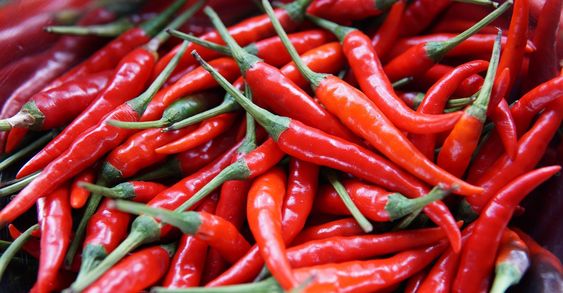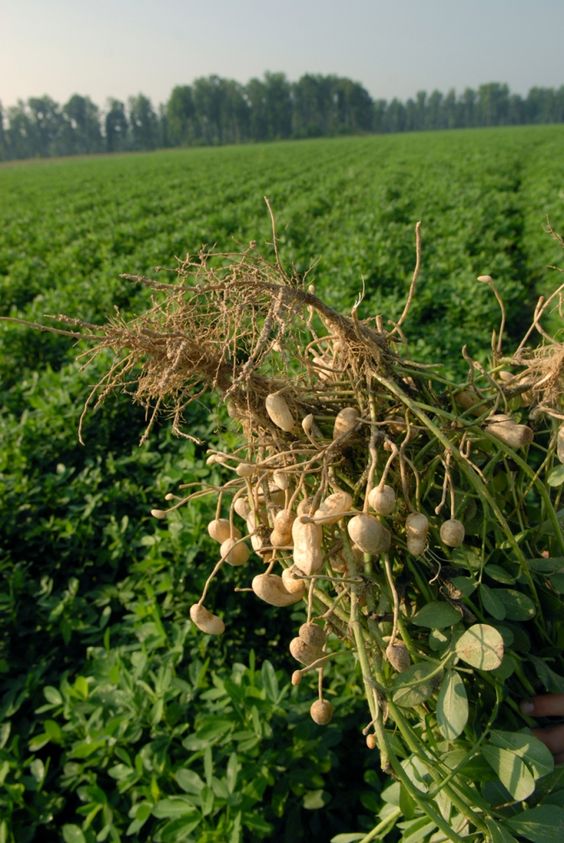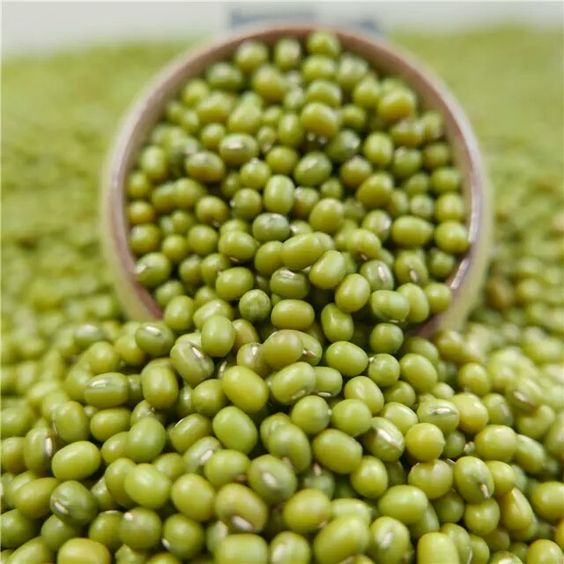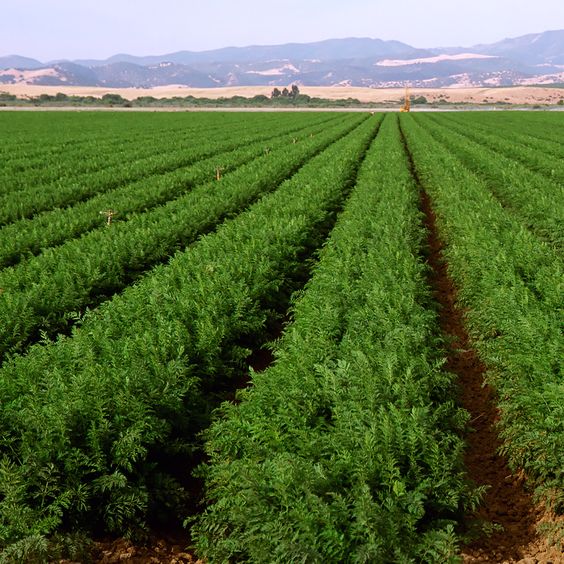Organic Chili Pepper Farming: Unlocking Revolutionary Benefits with Smart Agriculture for Maximum Productivity
Organic chili pepper farming is becoming increasingly popular as farmers and consumers alike prioritize sustainability and environmental responsibility. This shift towards organic practices is driven by a growing awareness of the negative impacts of conventional farming methods, including the use of synthetic pesticides and fertilizers, which can harm the environment and human health. In response to these concerns, organic farming offers a more sustainable alternative, focusing on natural processes and minimizing chemical inputs. Within this context, the integration of Smart Agriculture technologies represents a transformative advancement, bringing new possibilities for enhancing productivity and resource efficiency.
Smart Agriculture refers to the use of advanced technologies to optimize agricultural practices through data collection, analysis, and automation. This approach aligns perfectly with the goals of organic farming, which seeks to improve crop yields and quality while maintaining environmental sustainability. By leveraging technologies such as precision agriculture, data analytics, drones, automated irrigation systems, and smart fertilization techniques, organic chili pepper farming can be significantly enhanced in several ways.
Contents
- 1 Benefits of Integrating Smart Agriculture in Organic Chili Pepper Farming
- 2 Objectives of Implementing Smart Agriculture in Organic Chili Pepper Farming
- 3 Explanation of Smart Agriculture Technologies in Organic Chili Pepper Farming
- 4 Usefulness of Smart Agriculture in Organic Chili Pepper Farming
- 5 Advantages of Smart Agriculture in Organic Chili Pepper Farming
Benefits of Integrating Smart Agriculture in Organic Chili Pepper Farming
Enhanced Yield and Quality
One of the most significant benefits of integrating Smart Agriculture into organic chili pepper farming is the enhancement of yield and quality. Smart Agriculture technologies, including precision agriculture tools, enable farmers to monitor and optimize growing conditions with remarkable accuracy. By utilizing GPS and sensor technology, precision agriculture ensures that each chili pepper plant receives the precise amount of nutrients, water, and other inputs it needs at different growth stages. This tailored approach minimizes nutrient imbalances and water stress, leading to healthier plants and, consequently, higher yields. Improved plant health directly translates to better quality peppers, with enhanced flavors, sizes, and consistency, meeting the high standards of organic produce and satisfying consumer expectations.
Resource Efficiency
Resource efficiency is another key advantage of Smart Agriculture in organic chili pepper farming. Automated irrigation systems, which use real-time soil moisture data and weather forecasts, ensure that water is applied only when and where it is needed. This reduces water wastage, a critical factor in water-scarce regions, and supports sustainable water management practices. Similarly, smart fertilization systems precisely apply organic fertilizers based on real-time soil nutrient data. This targeted approach reduces the amount of fertilizer used, minimizes nutrient runoff, and prevents soil degradation, all while maintaining the principles of organic farming. By optimizing the use of resources, Smart Agriculture helps farmers achieve better outcomes while minimizing environmental impact.
Cost Savings
Smart Agriculture technologies contribute to significant cost savings for organic chili pepper farmers. By reducing the need for excess inputs such as water and fertilizers, farmers can lower their operational costs. Precision agriculture tools and data analytics provide actionable insights that help farmers make informed decisions, avoiding unnecessary expenditures on resources. For example, automated irrigation systems reduce the frequency of manual irrigation, cutting labor costs, while smart fertilization systems optimize the application of organic fertilizers, reducing the overall quantity needed. Moreover, early detection of potential issues such as nutrient deficiencies or pest infestations through real-time monitoring helps prevent costly crop losses and expensive corrective measures. These cost-saving benefits improve the overall profitability of organic chili pepper farming operations.
Pest and Disease Management
Effective pest and disease management is crucial for maintaining the health and productivity of organic chili pepper crops. Smart Agriculture technologies enhance this aspect by enabling real-time monitoring and data analysis. Drones equipped with high-resolution cameras and sensors provide detailed aerial views of the crops, allowing farmers to identify early signs of pest infestations or disease outbreaks. Additionally, data analytics platforms process information from various sources, such as weather conditions and historical pest data, to predict and prevent potential issues. This proactive approach enables targeted interventions, such as localized application of organic pest control methods, reducing the reliance on broad-spectrum treatments.
Sustainability
Sustainability is a core principle of organic farming, and Smart Agriculture aligns closely with these values. By optimizing resource use and reducing environmental impact, Smart Agriculture supports sustainable farming practices. Technologies such as precision agriculture, automated irrigation, and smart fertilization contribute to efficient resource management, lowering the ecological footprint of farming activities. Additionally, real-time monitoring of soil health and crop conditions helps maintain soil fertility and structure, ensuring long-term sustainability. By integrating Smart Agriculture into organic chili pepper farming, farmers can achieve their sustainability goals while enhancing productivity and profitability, creating a more resilient and environmentally friendly agricultural system.

Objectives of Implementing Smart Agriculture in Organic Chili Pepper Farming
Implementing Smart Agriculture in organic chili pepper farming brings several key objectives that align with both the goals of modern farming and the principles of organic practices. These objectives not only enhance the efficiency and productivity of farming operations but also support sustainable and environmentally friendly practices. Here’s an in-depth look at each of these objectives:
Increase Productivity
One of the primary objectives of integrating Smart Agriculture technologies in organic chili pepper farming is to increase productivity. By leveraging advanced technologies such as precision agriculture tools, farmers can optimize growing conditions for their crops. Precision agriculture uses GPS and sensor technologies to monitor soil conditions, plant health, and environmental factors in real-time. This allows farmers to make precise adjustments to inputs like water and nutrients, ensuring that each plant receives exactly what it needs. By optimizing these conditions, farmers can achieve higher yields of chili peppers and improve their quality. Enhanced productivity not only meets the growing demand for organic produce but also helps farmers achieve better economic returns.
Promote Sustainable Practices
Sustainability is a core principle of organic farming, and Smart Agriculture technologies are designed to support and enhance these practices. One of the key ways this is achieved is by reducing waste and minimizing the use of chemicals. Automated irrigation systems, for example, deliver water efficiently based on real-time soil moisture data, reducing water wastage and conserving this vital resource. Similarly, smart fertilization systems apply organic fertilizers more precisely, minimizing nutrient runoff and preventing soil degradation. By aligning with the principles of organic farming, Smart Agriculture helps maintain soil health, promotes biodiversity, and supports environmentally friendly practices that contribute to long-term agricultural sustainability.
Improve Resource Management
Effective resource management is crucial in organic chili pepper farming, where efficient use of water, nutrients, and other resources is essential. Smart Agriculture technologies offer advanced tools for managing these resources more efficiently. Automated irrigation systems use real-time data to optimize water usage, ensuring that crops receive adequate moisture without excessive water consumption. Smart fertilization systems leverage data from soil sensors to apply fertilizers in the right amounts and at the right times, reducing the risk of over-fertilization and nutrient runoff.
Enhance Decision-Making
Data-driven decision-making is a significant advantage of Smart Agriculture, enabling farmers to make more informed choices about crop management. Technologies such as data analytics platforms and real-time monitoring tools provide valuable insights into various aspects of farming operations. For example, data collected from soil sensors, weather forecasts, and crop health assessments can be analyzed to determine the optimal times for planting, irrigation, and fertilization.
Explanation of Smart Agriculture Technologies in Organic Chili Pepper Farming
Smart Agriculture technologies are revolutionizing organic chili pepper farming by providing advanced tools for monitoring, managing, and optimizing crop production. These technologies enhance productivity, improve resource efficiency, and support sustainable farming practices. Here’s a detailed explanation of the key Smart Agriculture technologies used in organic chili pepper farming:
Precision Agriculture
Precision agriculture is a cornerstone of Smart Agriculture and involves the use of GPS and sensor technologies to monitor and manage crop growth with high precision. In organic chili pepper farming, precision agriculture employs various sensors to collect data on crucial parameters such as soil moisture, temperature, and nutrient levels. These sensors provide real-time information about the growing conditions of the chili peppers. For instance, soil moisture sensors help farmers determine the exact water needs of their crops, preventing both over- and under-irrigation. Temperature sensors monitor ambient conditions to ensure that chili peppers are grown within their ideal temperature range, promoting optimal growth.
Data Analytics
Data analytics plays a crucial role in Smart Agriculture by aggregating and analyzing data from multiple sources to provide actionable insights. In the context of organic chili pepper farming, data analytics involves processing information from various inputs such as weather forecasts, soil health assessments, and historical crop performance. This analysis helps farmers predict weather patterns, allowing them to plan planting and harvesting schedules more effectively. For example, accurate weather forecasts can help farmers avoid planting during adverse weather conditions or optimize irrigation schedules to align with rainfall patterns.
Drones and Aerial Imaging
Drones equipped with high-resolution cameras and sensors provide a bird’s-eye view of crops, offering detailed aerial imagery that is invaluable for organic chili pepper farming. These drones capture high-resolution images of the chili pepper fields, allowing farmers to assess plant health and detect issues early. For example, aerial imaging can reveal signs of nutrient deficiencies, pest infestations, or disease outbreaks that may not be visible from the ground. By identifying these problems early, farmers can plan targeted interventions, such as localized application of organic pest control methods or adjustments to fertilization practices.
Automated Irrigation Systems
Automated irrigation systems use real-time data to manage irrigation schedules and amounts with precision. These systems are designed to ensure that chili pepper plants receive the right amount of water, optimizing water use and preventing over-irrigation. Automated irrigation systems integrate with soil moisture sensors to monitor the soil’s water content continuously. When the soil moisture drops below a predetermined threshold, the system activates irrigation to replenish the soil’s moisture levels. This approach not only conserves water but also enhances crop health by providing consistent and adequate watering. By aligning irrigation practices with the actual needs of the chili peppers, automated systems support the principles of organic farming, which emphasize efficient resource use and environmental stewardship.
Smart Fertilization Systems
Smart fertilization systems integrate with soil sensors to deliver organic fertilizers based on real-time nutrient needs. These systems are designed to apply fertilizers precisely where and when they are needed, minimizing waste and supporting organic farming practices. Soil sensors measure nutrient levels and provide data on deficiencies or excesses in the soil. The smart fertilization system uses this data to adjust the amount and timing of fertilizer application, ensuring that chili pepper plants receive the optimal nutrients for healthy growth.
Usefulness of Smart Agriculture in Organic Chili Pepper Farming
The integration of Smart Agriculture technologies in organic chili pepper farming is transforming how farmers manage their crops, with significant benefits in terms of efficiency, sustainability, and adherence to organic farming principles. These advanced technologies offer precise control over various aspects of farming, from resource management to crop health monitoring, making it possible to achieve better results with less environmental impact. Here’s an in-depth exploration of the usefulness of Smart Agriculture in organic chili pepper farming:
Enhanced Efficiency in Resource Management
One of the most critical advantages of Smart Agriculture is its ability to enhance the efficiency of resource management. Organic chili pepper farming relies heavily on the careful use of water, nutrients, and other inputs to maintain the integrity of the organic certification and ensure healthy crop growth. Smart Agriculture technologies, such as precision irrigation systems and smart fertilization, enable farmers to manage these resources with pinpoint accuracy. For instance, precision irrigation systems use real-time data from soil moisture sensors to deliver water exactly where and when it’s needed, reducing water wastage and ensuring that plants receive the optimal amount of moisture.
Improvement in Crop Health and Yield
Organic Chili Pepper Farming,Another key area where Smart Agriculture proves useful is in improving the health and yield of organic chili pepper crops. Through the use of technologies such as drones equipped with high-resolution cameras and multispectral sensors, farmers can monitor the health of their crops with unprecedented detail. Drones can capture images that reveal early signs of stress, disease, or pest infestations that might not be visible to the naked eye. This early detection allows farmers to take targeted actions, such as applying organic pest control measures or adjusting irrigation practices, to address issues before they escalate.
Support for Environmental Stewardship
Organic Chili Pepper Farming,Environmental stewardship is a cornerstone of organic farming, and Smart Agriculture technologies are invaluable in supporting these efforts. By optimizing the use of natural resources, Smart Agriculture helps reduce the environmental footprint of farming activities. For example, the precision application of water and fertilizers not only conserves these resources but also prevents excess runoff, which can lead to soil degradation and water pollution. Furthermore, the use of real-time data and predictive analytics enables farmers to make informed decisions that align with environmental best practices. For instance, data on weather patterns can help farmers plan irrigation schedules that conserve water and reduce the risk of erosion.
Adherence to Organic Farming Principles
Organic Chili Pepper Farming,One of the primary concerns for organic farmers is maintaining adherence to organic farming principles while adopting new technologies. Smart Agriculture technologies are designed to complement rather than compromise these principles. For example, precision agriculture tools can be used to optimize the application of organic inputs, such as compost and natural fertilizers, in a way that supports soil health and promotes long-term fertility. Additionally, the data-driven approach of Smart Agriculture allows farmers to reduce reliance on synthetic inputs, which are prohibited in organic farming, by providing alternatives such as organic pest control measures and natural soil amendments.

Advantages of Smart Agriculture in Organic Chili Pepper Farming
Organic Chili Pepper Farming,The integration of Smart Agriculture technologies in organic chili pepper farming offers numerous advantages, ranging from increased efficiency and improved crop health to enhanced environmental stewardship and economic benefits. These technologies, which include automation, data analytics, precision agriculture, and more, are transforming how organic chili peppers are grown, making farming practices more sustainable, productive, and adaptable. Here’s a detailed look at the key advantages of Smart Agriculture in organic chili pepper farming:
Increased Efficiency
Organic Chili Pepper Farming,One of the most significant advantages of Smart Agriculture in organic chili pepper farming is the increased efficiency it brings to farming operations. By automating various tasks and providing data-driven insights, Smart Agriculture reduces the need for manual labor and streamlines farming practices. For example, automated irrigation systems ensure that chili peppers receive the right amount of water at the right time, eliminating the need for manual watering and reducing water waste. Similarly, smart fertilization systems use real-time soil data to apply organic fertilizers precisely where they are needed, optimizing nutrient use and minimizing waste.
Improved Crop Health
Organic Chili Pepper Farming,Another key advantage of Smart Agriculture is its ability to improve crop health, which is crucial for producing high-quality organic chili peppers. Through the use of advanced monitoring tools such as drones, sensors, and data analytics, farmers can detect issues early and implement precise interventions. For instance, drones equipped with multispectral cameras can capture detailed images of chili pepper plants, revealing early signs of stress, disease, or pest infestations that might not be visible to the naked eye. This early detection allows farmers to take targeted action, such as applying organic pest control measures or adjusting irrigation schedules, to address problems before they escalate.
Enhanced Environmental Stewardship
Organic Chili Pepper Farming,Environmental stewardship is a core principle of organic farming, and Smart Agriculture technologies play a crucial role in supporting this goal. By optimizing the use of natural resources such as water, nutrients, and energy, Smart Agriculture helps reduce the environmental impact of farming activities. For example, precision irrigation systems minimize water use by delivering it directly to the root zones of plants, reducing runoff and conserving this valuable resource. Similarly, smart fertilization systems prevent nutrient runoff, which can lead to soil degradation and water pollution, by applying fertilizers only when and where they are needed.
Economic Benefits
Organic Chili Pepper Farming Smart Agriculture technologies offer significant economic benefits for organic chili pepper farmers. By improving resource efficiency and crop health, these technologies can lead to lower input costs and higher yields, both of which contribute to better financial outcomes. For example, precision agriculture tools reduce the amount of water, fertilizers, and other inputs needed to maintain healthy crops, leading to cost savings. Additionally, the ability to monitor crop health closely and detect issues early can prevent crop losses, ensuring that farmers harvest a higher percentage of their produce.
Adaptability
Organic Chili Pepper Farming,One of the most appealing aspects of Smart Agriculture is its adaptability. These technologies can be tailored to suit different farming conditions and scaled to meet the needs of both small and large operations. For instance, precision agriculture tools can be customized to monitor specific environmental conditions, such as soil type, climate, and topography, ensuring that farmers receive accurate and relevant data for their unique farming situations.




